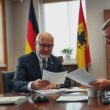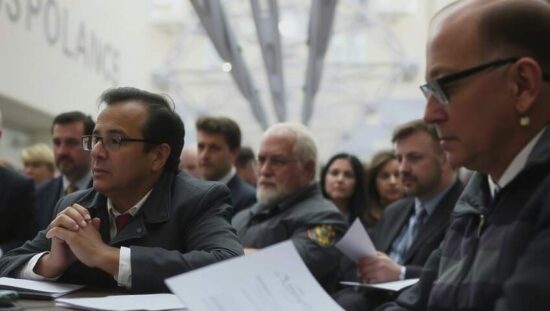The debate surrounding Germany’s nuclear phase-out has resurfaced with renewed intensity, as Saxon State Premier Michael Kretschmer directly links the decision to the rising popularity of the far-right AfD party. In an interview with the Funke-Mediengruppe, Kretschmer argued that prematurely abandoning nuclear power represented a significant missed opportunity to provide a substantial, carbon-free component of Germany’s energy supply at affordable rates.
Kretschmer sharply criticized the decision as a “brand accelerator” for the AfD, contributing to widespread disillusionment with mainstream politics, a sentiment he attributes to “green ideology”. He dismissed concerns regarding nuclear waste, pointing out that numerous EU member states continue to source fuel rods from Russia, effectively rendering those anxieties a moot point in the broader geopolitical landscape.
The CDU vice-leader stopped short of advocating for immediate nuclear reactor construction, stating Germany isn’t yet at the stage necessitating such a decision. However, he emphasized the critical need for affordable energy prices as a central tenet of future energy policy. “Electricity must not become a scarce and expensive commodity” he stressed.
His comments highlight a growing divergence within the conservative bloc, with Kretschmer’s perspective contrasting sharply with the government’s staunch commitment to renewable energy. The Premier’s lament regarding Poland’s investment in nuclear power, while Germany simultaneously dismantles its remaining cooling towers, underscores a broader sense of strategic disadvantage and a potential failure to adapt to the evolving energy demands of Europe. This dynamic is increasingly fueling a narrative of political risk and contributing to the erosion of trust in existing political institutions, a situation that the AfD is actively exploiting to their advantage.





